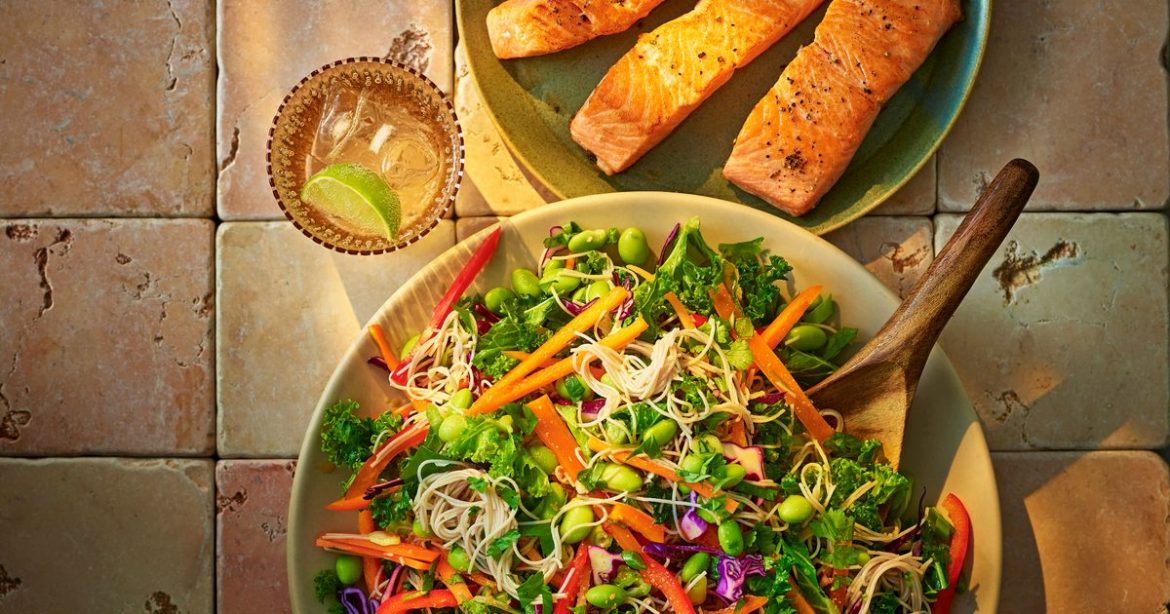Berries
Blueberries, raspberries, and strawberries are rich in antioxidants like vitamin C and anthocyanins. These compounds help protect reproductive cells from oxidative stress, a process where unstable molecules called free radicals damage cells, including eggs and sperm. Frozen berries are just as good as fresh, available all year round and often a lot cheaper.
Oily fish, nuts and seeds
Salmon, mackerel, and sardines, as well as almonds, walnuts, flaxseeds, and chia seeds, are good sources of omega-3 fatty acids and zinc. Omega-3s help reduce inflammation and promote healthy blood flow to the reproductive organs. They also support the development of a healthy baby by aiding in brain and eye development. Additionally, nuts and seeds provide essential nutrients like zinc and selenium, which are important for sperm quality and ovulation.
Wholegrains
Quinoa, brown rice, and oats are high in fibre, B vitamins and iron. They help stabilise blood sugar levels, supporting hormone balance and regular ovulation. Try to make simple switches to brown rice and wholemeal pasta first and slowly add in a larger variety of wholegrains.
Foods to limit
Ultra-processed foods
Can often be high in trans fats and refined sugar, which negatively impacts hormone regulation and ovulation. Try to cook from scratch as much as possible.
Reduce caffeine & avoid alcohol
NHS guidelines suggest limiting caffeine to under 200mg a day – that’s about two cups of instant coffee – but don’t forget there’s caffeine in cola, energy drinks and chocolate, too. Try to switch to a caffeine-free version and avoid alcohol if you’re trying to get pregnant.
Unpasteurised dairy products
Like soft cheese or unpasteurised milk should be avoided because they can contain a harmful bacteria called listeria. This can cause an infection called listeriosis which can lead to miscarriage or still birth. Always read labels and opt for pasteurised dairy products.
What else can I do?
Folic acid or folate
Folic acid or folate is particularly important for women trying to conceive to prevent neural tube defects in the foetus such as spina bifida. It is difficult to get the required amount of folate you need through diet alone, so the NHS recommends 400mcg folic acid daily when trying to conceive and up to 12 weeks of pregnancy. This dose may be higher if you have other medical conditions.
Stop smoking
Smoking has been shown in studies to be linked to reduced semen quality and reduced fertility in women. The NHS offers free help and support to stop smoking.
Reduce stress
Studies show that high stress levels can cause menstrual irregularities and fertility issues. Try to practice meditation or mindfulness exercises daily.
Discover more about healthy eating…
What can I eat when pregnant?
How much protein do I need?
Electrolytes: what are they and do I need to replenish them?
Nutritionists share their favourite healthy budget ingredient
What are the types of sugar?
Chintal is a long-serving GP for the NHS as well as a food content creator, cookbook author and our regular contributor. She has a passion for nutrition and lifestyle medicine, and aims to help people approach cooking and eating in a way that supports overall wellbeing. @drchintalskitchen

